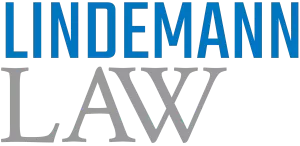- in European Union
- with readers working within the Utilities industries
- within Media, Telecoms, IT and Entertainment topic(s)
Non-Fungible Tokens (NFTs) have become a popular investment both for private and institutional investors. Volumes of trading in NFTs and the offering of new NFTs are growing. As regulation lags behind, there are certain practical legal and tax issues that investors may face. Below we consider some of the typical tax questions for investors in Switzerland.
1. What makes NFTs unique?
An NFT is a special form of token that is different from other tokens because an NFT is unique and not fungible or replaceable. NFTs cannot be exchanged with other non-fungible tokens. The uniqueness and rarity results from the individual characteristics of each NFT.
Most tokens are issued on Ethereum under one of the existing Ethereum protocols (ECR-Standards). While common fungible tokens are issued under the ECR-20 standard, NFTs are issued under a special ECR-721 standard. Tokens issued according to the ECR-721 standard differ from other tokens in the following aspects:
- they have TokenID which cannot be changed in the Blockchain and serves as a certificate of authenticity;
- they cannot be changed once they have been created;
- they are indivisible.
2. How are NFTs treated for Swiss tax purposes?
Until now the Swiss Federal Tax Administration has issued two key documents dealing with the taxation of crypto-assets: the Working Paper and Tax Information Document on the Taxation of Crypto-assets. In these documents the following types of tokens are considered:
- Payment tokens, defined as tokens used for the purchase of goods and services;
- Utility tokens giving access to a digital right or service that is provided on or using a blockchain infrastructure;
- Asset-baked tokens representing an investment in an underlying asset.
The above-mentioned documents do not contain any specific guidance on classification or treatment of NFTs for Swiss tax purposes. The proposed token categorisation does not appear to be suitable for NFTs, because NFTs represent unique items which are not interchangeable. For this reason, the question of the tax treatment of transactions with NFTs in Switzerland is still open and a case-by-case analysis is required.
For example, certain characteristics of NFTs may allow them to be classified as digital artwork and be treated as "collectibles" for tax purposes. Alternatively, they may be classified as immaterial rights and their transfer as a service.
3. Is trading with NFTs subject to VAT in Switzerland?
Should the transfer of NFTs (such a purchase or sale of an NFT) qualify as the provision of a service, the place of supply for VAT purposes should generally be determined based on the residence of the recipient of such service.
Buying and selling NFTs may be subject to Swiss VAT if the place of supply is in Switzerland, i.e. if the purchaser of the NFTs is in Switzerland or Liechtenstein. For example, if there are cross-border transactions and NFTs are sold to investors located in Switzerland, this may trigger a reverse-charge Swiss VAT or VAT liability of the seller of the NFTs in Switzerland.
Where a Swiss person is selling NFTs, the sales to Swiss or Liechtenstein buyers would be subject to Swiss VAT at a rate of 7.7%, while the sales to foreign buyers would not be subject to Swiss VAT.
In practice, most of the transactions with NFTs happen cross-border through specialised online platforms where trades take place on an anonymous basis. This makes it difficult for the Swiss investors to determine the place of supply for VAT purposes and, consequently, to identify which of these transactions are subject to Swiss VAT and which are not. A suitable practical solution may be agreed with the Swiss tax authorities based on the specific circumstances of each particular case.
4. Is trading in NFTs subject to personal income tax in Switzerland?
Where Swiss-resident individuals regularly trade in NFTs, they may be seen as carrying out a taxable gainful trading activity rather than the tax-exempt private asset management. In this case any gains resulting from such sales would be subject to personal income tax (losses may be tax deductible).
Whether there is a gainful trading activity must be assessed based on all circumstances of the individual case. To provide legal certainty to taxpayers, the Swiss tax authorities have developed some criteria as "safe-harbour rules" which take into account such parameters as the holding period of investments, the transaction volume (the total of all purchase prices and sales proceeds) per calendar year, the proportion between the capital gains from investments and the net income in the tax period, leverage and the use of derivatives.
5. Is holding NFTs subject to wealth tax in Switzerland?
If a Swiss-resident individual holds NFTs, such NFTs form part of the wealth subject to wealth tax in Switzerland. For wealth tax purposes the valuation of assets is required at the end of each tax period. Finding a suitable valuation for NFTs may be a difficult task. On the one hand, the Swiss Federal Tax Administration does not publish year-end valuations for NFTs. On the other hand, there is no developed secondary market where one can find the current market value of the relevant NFT. A suitable practical solution would need to be found in each particular case and may potentially be agreed in a tax ruling with the relevant cantonal tax authorities.
The content of this article is intended to provide a general guide to the subject matter. Specialist advice should be sought about your specific circumstances.



